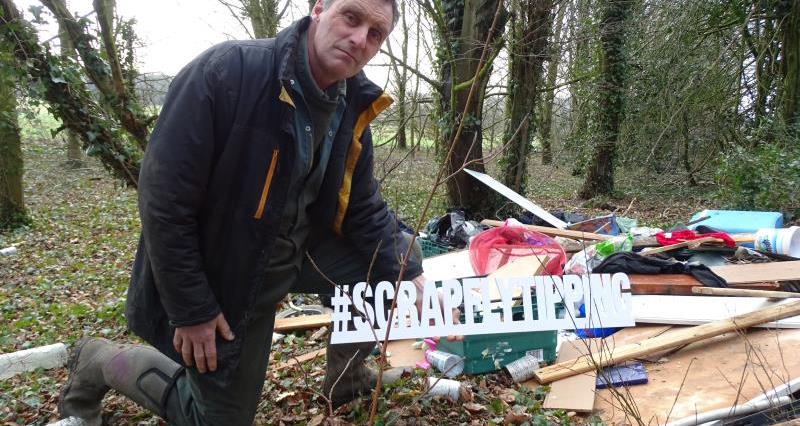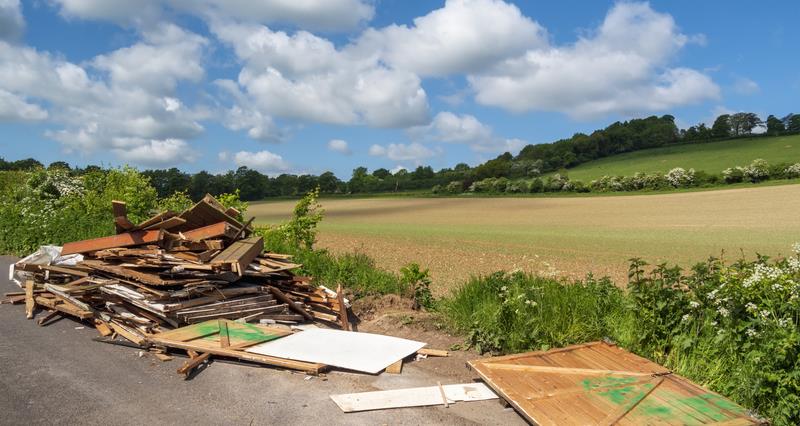Will, a sixth-generation farmer based in Harpenden, said the illegal dumping of waste is costing him and other farmers thousands of pounds, harming the environment and blighting the countryside.
The NFU estimates that at least two thirds of farmers have been affected by fly-tipping and the clear-up costs the industry tens of millions of pounds a year.
There is also a massive strain on the public purse as local authorities and the Environment Agency tackle rubbish dumped on public land.
Mr Dickinson said: “Fly-tipping is as bad now as it has ever been. It’s happening here almost every day. We’ve had all sorts of things dumped - from green waste to nappies to bathroom suites.

“We’ve even had asbestos left on the fields, meaning we’ve been unable to harvest areas of land, which is a huge inconvenience and cost to the business.
“This is one of the very few crimes where the victim has to pay the costs. It is legally the responsibility of the landowner to pay for removing the rubbish.
“Those who do get caught often receive a small fine when the landowner, the victim, must pay out much more to clear up the mess.
“Fortunately, the police locally are hot on it and the district council has undertaken a lot of work to try to tackle fly-tipping. But they need more power and the NFU is continuing to make our case with decision makers.”
NFU calls for urgent action on fly tipping
It was reported earlier this year that fly-tipping cases across the country had fallen slightly. But with over a million incidents reported, this is still much higher than the figures recorded in 2018/2019 and 2019/2020 and part of a concerning overall trend.
This prompted the NFU to reiterate its call for urgent action to tackle fly-tipping on farmland. This includes making it easier for the public to reduce and recycle waste, and properly punishing offenders who are caught dumping waste illegally with punitive fines, so they act as a deterrent.
We're encouraging members to share incidents of fly-tipping with us via our online form to help us strengthen our case with the government.
The NFU also wants to see a consistent approach across the country where police, government agencies and local authorities are working more closely together to tackle the problem.
The NFU believes the whole system needs to tackle fly-tipping at the source - from packaging design, recycling, landfill tax and tip opening hours - to make it easier for the public to reduce, re-use and recycle waste.
It adds that proportionate penalties as a deterrent to potential offenders, combined with more consistent enforcement measures, are key to addressing this issue.

